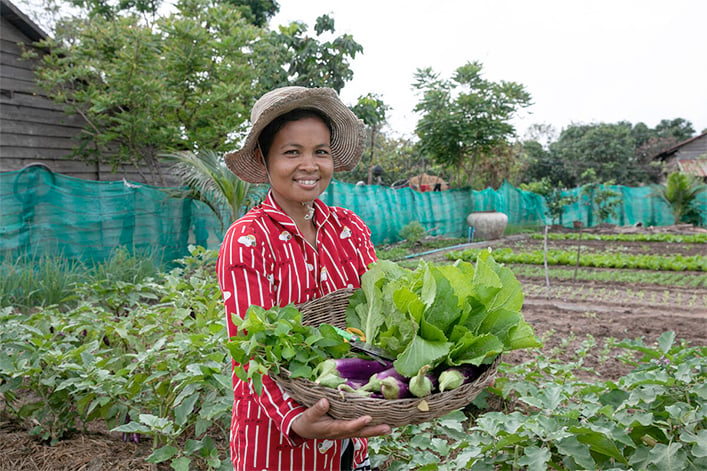WINNIPEG — The International Year of the Woman farmer will officially be launched Thursday at an event in Washington, D.C.
Officials from the U.S. Department of Agriculture and other government agencies will attend the event, which will kick off programs and policies to support female farmers around the globe.
“The International Year of the Woman Farmer 2026 will serve as a platform for the adoption of effective policies and actions against the barriers and challenges that women farmers face across agrifood systems,” the United Nations Food and Agriculture Organization said in May, after the UN General Assembly voted to declare the International Year of the Woman Farmer.
Read Also

Farmers asked to keep an eye out for space junk
Farmers and landowners east of Saskatoon are asked to watch for possible debris in their fields after the re-entry of a satellite in late September.
The designation is symbolic, but it does recognize that female farmers deal with unique challenges — in the United States, Canada and especially the developing world.
Women are responsible for roughly half of the world’s food production and in many countries they produce 60 and 80 per cent of the food, the UN says.

However, in some nations, including multiple countries in Africa, local laws and customs make it difficult for women to own land.
“From the field to the factory, from the classroom to the boardroom, women are fundamental to the future of agriculture. As leaders, it is our responsibility to make sure the next generation of women farmers have equal access to economic, educational and leadership opportunities,” said USDA deputy secretary Xochitl Torres-Small.
In Canada, farm leaders know that women play critical roles in farming and food production, but those efforts are often unappreciated.
Last year, Farm Management Canada published a report called Expanding Opportunities for Canadian Agriculture by Understanding the Experience of Farm Women.
“The contribution farm women make to the industry has historically been unrecognized, uncounted and undervalued,” the report said.
“There is ample anecdotal evidence to suggest that women are influencing and positioned to influence farming in Canada in ways that go far beyond current measurements.”
Farm Management Canada collected data and studied the contributions of women on Canadian farms. Women are still responsible for traditional roles, such as child care and managing the finances, but they are now involved in every aspect of farming and food production, the report said.
“The broad range and diversity of activities undertaken underscores that there is no typical role for a farm woman,” it said.
Barriers
Female farmers may have new and different roles compared to 40 years ago, but they still cope with barriers that have existed for decades.
A 2016 study from the Canadian Agricultural Human Resources Council found that 41 per cent of women and 12 per cent of men agreed there are barriers preventing women from advancing in agriculture.
The Farm Management Canada report identified the top three barriers for women in agriculture:
- Balancing career and family.
- Operating with an “old boys’ club.”
- Lack of female role models.
One way to overcome such obstacles and connect with role models could be training courses that are specific to women.
“Learning opportunities in areas that (women) haven’t got experience in yet,” said Kelly Sidoryk, who operates a cattle ranch near Lloydminster, Alta., with her family.
“Maybe in a more traditional training, there are assumptions made … that you have mechanical experience or you have livestock handling experience or maybe it’s about knowing finances.”
Sidoryk will be part of a training session in November, which will be a networking learning opportunity for women in agriculture.
More information on the event can be found at https://www.facebook.com/KTandComp/.
More courses and programs for female farmers are likely in 2026 and leading up to the International Year of the Woman Farmer.
Contact robert.arnason@producer.com


















